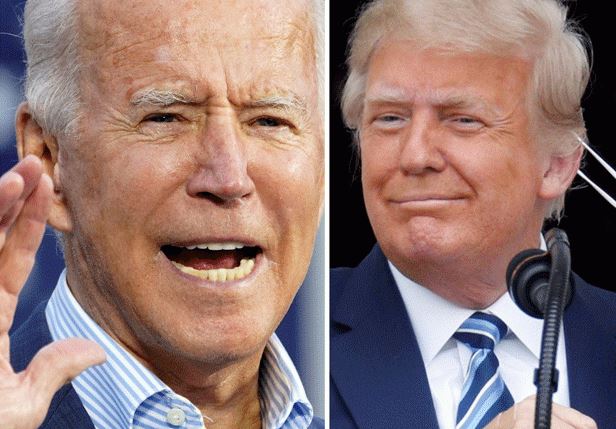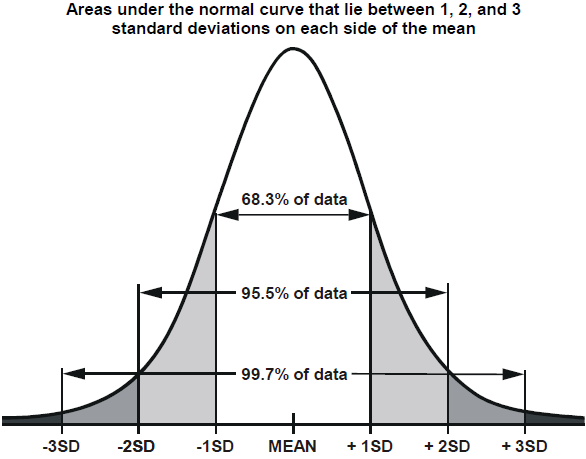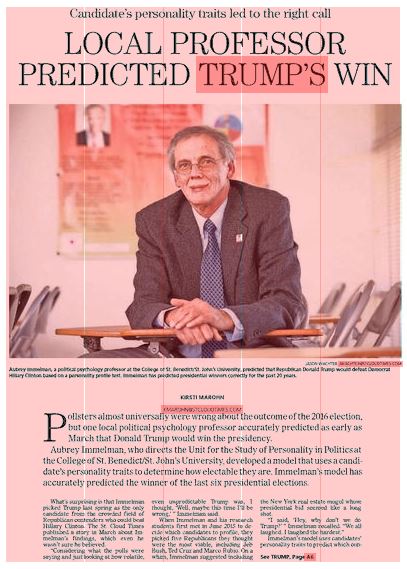Featured Posts

- Index of Psychological Studies of Presidents and Other Leaders Conducted at the Unit for the Study of Personality in Politics
- The Personality Profile of U.S. Supreme Court Associate Justice Brett Kavanaugh
- The Leadership Style of North Korean Leader Kim Jong-un
- North Korea Threat Assessment: The Psychological Profile of Kim Jong-un
- Russia Threat Assessment: Psychological Profile of Vladimir Putin
- The Personality Profile of 2016 Republican Presidential Candidate Donald Trump
- Donald Trump's Narcissism Is Not the Main Issue
- New Website on the Psychology of Politics
- Unit for the Study of Personality in Politics --- 'Media Tipsheet'
categories

- Afghanistan (228)
- Al Gore (2)
- Amy Klobuchar (4)
- Ayman al-Zawahiri (7)
- Barack Obama (60)
- Ben Carson (2)
- Bernie Sanders (7)
- Beto O'Rourke (3)
- Bill Clinton (4)
- Bob Dole (2)
- Campaign log (109)
- Chris Christie (2)
- Chuck Hagel (7)
- Criminal profiles (8)
- Dick Cheney (11)
- Domestic resistance movements (21)
- Donald Trump (31)
- Economy (33)
- Elizabeth Warren (4)
- Environment (24)
- George H. W. Bush (1)
- George W. Bush (21)
- Hillary Clinton (9)
- Immigration (39)
- Iran (43)
- Iraq (258)
- Jeb Bush (3)
- Joe Biden (13)
- John Edwards (2)
- John Kasich (2)
- John Kerry (1)
- John McCain (7)
- Kamala Harris (5)
- Kim Jong-il (3)
- Kim Jong-un (11)
- Law enforcement (25)
- Libya (18)
- Mahmoud Ahmadinejad (6)
- Marco Rubio (2)
- Michael Bloomberg (1)
- Michele Bachmann (173)
- Mike Pence (3)
- Military casualties (234)
- Missing person cases (37)
- Mitt Romney (13)
- Muqtada al-Sadr (10)
- Muslim Brotherhood (6)
- National security (16)
- Nelson Mandela (4)
- News (5)
- North Korea (36)
- Osama bin Laden (19)
- Pakistan (49)
- Personal log (25)
- Pete Buttigieg (4)
- Presidential candidates (19)
- Religious persecution (11)
- Rick Perry (3)
- Rick Santorum (2)
- Robert Mugabe (2)
- Rudy Giuliani (4)
- Russia (7)
- Sarah Palin (7)
- Scott Walker (2)
- Somalia (20)
- Supreme Court (4)
- Syria (5)
- Ted Cruz (4)
- Terrorism (65)
- Tim Pawlenty (8)
- Tom Horner (14)
- Tributes (40)
- Uncategorized (50)
- Vladimir Putin (4)
- Xi Jinping (2)
- Yemen (24)
Links

archives

- November 2021
- January 2021
- November 2020
- October 2020
- September 2020
- August 2020
- July 2020
- April 2020
- March 2020
- February 2020
- January 2020
- December 2019
- October 2019
- July 2019
- May 2019
- April 2019
- March 2019
- February 2019
- January 2019
- December 2018
- September 2018
- August 2018
- July 2018
- June 2018
- April 2018
- March 2018
- February 2018
- January 2018
- August 2017
- July 2017
- June 2017
- May 2017
- April 2017
- February 2017
- January 2017
- December 2016
- November 2016
- October 2016
- September 2016
- August 2016
- July 2016
- June 2016
- May 2016
- April 2016
- March 2016
- February 2016
- January 2016
- December 2015
- November 2015
- October 2015
- September 2015
- August 2015
- July 2015
- June 2015
- May 2015
- April 2015
- March 2015
- February 2015
- January 2015
- December 2014
- November 2014
- October 2014
- September 2014
- August 2014
- July 2014
- June 2014
- May 2014
- April 2014
- March 2014
- February 2014
- January 2014
- December 2013
- November 2013
- October 2013
- September 2013
- August 2013
- July 2013
- June 2013
- May 2013
- April 2013
- March 2013
- February 2013
- January 2013
- December 2012
- November 2012
- October 2012
- September 2012
- August 2012
- July 2012
- June 2012
- May 2012
- April 2012
- March 2012
- February 2012
- January 2012
- December 2011
- November 2011
- October 2011
- September 2011
- August 2011
- July 2011
- June 2011
- May 2011
- April 2011
- March 2011
- February 2011
- January 2011
- December 2010
- November 2010
- October 2010
- September 2010
- August 2010
- July 2010
- June 2010
- May 2010
- April 2010
- March 2010
- February 2010
- January 2010
- December 2009
- November 2009
- October 2009
- September 2009
- August 2009
- July 2009
- June 2009
- May 2009
- April 2009
- March 2009
- February 2009
- January 2009
- December 2008
- November 2008
- October 2008
- September 2008
- August 2008
- July 2008
meta

Historian who correctly predicted every election since 1984 makes his call
Fox News, October 30, 2020 — American University Professor Allan Lichtman joins “The Story†to make his prediction on who will win the 2020 presidential election. (4:07)
By Aubrey Immelman
Unit for the Study of Personality in Politics
November 1, 2020
On July 8, 2019, I announced that the Unit for the Study of Personality in Politics’s Personal Electability Index (PEI) projected that none of the seven front-running Democratic contenders assessed at the USPP — in descending order of PEI scores Joe Biden, Kamala Harris, Bernie Sanders, Amy Klobuchar, Beto O’Rourke, Pete Buttigieg, and Elizabeth Warren — would defeat Donald Trump in the 2020 U.S. presidential election.
At the time, this election-outcome forecast was at variance with contemporaneous polls, for example, an ABC News/Washington Post poll, conducted June 28-July 1, 2019, that showed Trump losing against or statistically tied with the front-runners for the Democratic nomination for president:
Among all adults …, Joe Biden leads Trump by 14 points. But that narrows among the other four Democrats tested against Trump in this poll — an 8-point lead for Kamala Harris, a slight 7 points for Elizabeth Warren, 6 for Bernie Sanders and 4 for Pete Buttigieg.
In the past several months, I have frequently had to field inquiries regarding the status of a projection issued so far in advance of the election — nearly 16 months. For example, on September 29, Cambridge, Mass., psychiatrist John Martin-Joy, M.D., as part of his research for a Psychology Today blog on Joe Biden’s mental state, wrote in an email: “I’m curious if at this point you stand by the PEI’s prediction that Trump will win.â€
I responded as follows:
Regarding my simple little PEI heuristic, I have no choice but to “stand by†it; after all, Trump’s personality has not changed significantly since I issued my prediction on July 8, 2019 — nor would one expect it to change at his age, save for organic reasons. … The PEI is blissfully unaware of SARS-CoV-2, the economy, the unemployment numbers, or Trump’s tax returns leaked to the NYT shortly before the election. An implicit assumption of the PEI model is a relatively typical or “normal†election cycle — say (metaphorically) within one standard deviation of the mean. If the PEI projection of a Trump win turns out to be correct, it should be considered strong suggestive evidence for the robustness of the model.
In practical terms, the point I was attempting to communicate to Dr. Martin-Joy was that the 2020 presidential election is taking place under highly unusual circumstances; in fact, some observers have referred to the political environment as “unprecedented.â€
In that regard, it should be noted that the PEI heuristic model employs candidate personality traits, as publicly perceived, to predict which contender will resonate most favorably with independent and unaffiliated voters who base their voting choice primarily on the candidate’s personal qualities as publicly displayed rather than on party-political affiliation or allegiance. The implicit assumption is that the election occurs in a relatively typical, stable political environment in which the role of personality is not overwhelmed by strong situational forces (such as a global pandemic, a deep economic recession, high unemployment, social upheaval, or widespread civil unrest).
“Relatively typical†is in the eye of the beholder, but to invoke the normal curve metaphor, typicality can be defined as falling within one standard deviation of the mean (i.e., the general political environment in nearly 7 out of 10 election cycles). Of course, if social and economic circumstances surrounding the current presidential election truly are “unprecedented,†it could even be ventured that the 2020 presidential election is taking place in a political environment fully two standard deviations from the norm (i.e., more unusual than 9 out of 10 presidential election cycles).

Photo credits: Kevin Lamarque and Tom Brenner / Reuters
To conclude, I am not predicting the outcome of the presidential election, in which statistical models infinitely more sophisticated than my simple PEI heuristic give Joe Biden a 9-to-1 edge over Joe Biden. What I am asserting, however, is that — based solely on their respective personality profiles as assessed at the Unit for the Study of Personality in Politics — it’s advantage Donald Trump.

Graphic: FiveThirtyEight (Nov. 1, 2020)
Related reports
Projecting the Winner of the 2020 Presidential Election: The Personal Electability Index (July 8, 2019)
Projecting the Winner of the 2016 Presidential Election: The Personal Electability Index (Feb. 29, 2016)
Leave a Reply
You must be logged in to post a comment.





November 2nd, 2020 at 6:11 am
[…] Anticipating the Outcome of the 2020 Presidential Election: The Final Word (Nov. 1, 2020) […]